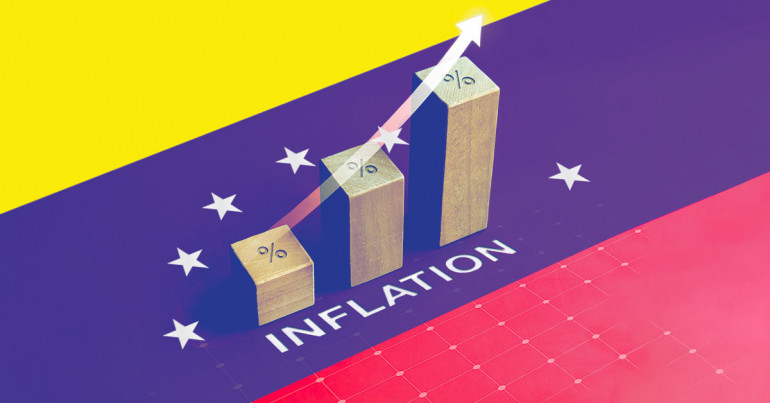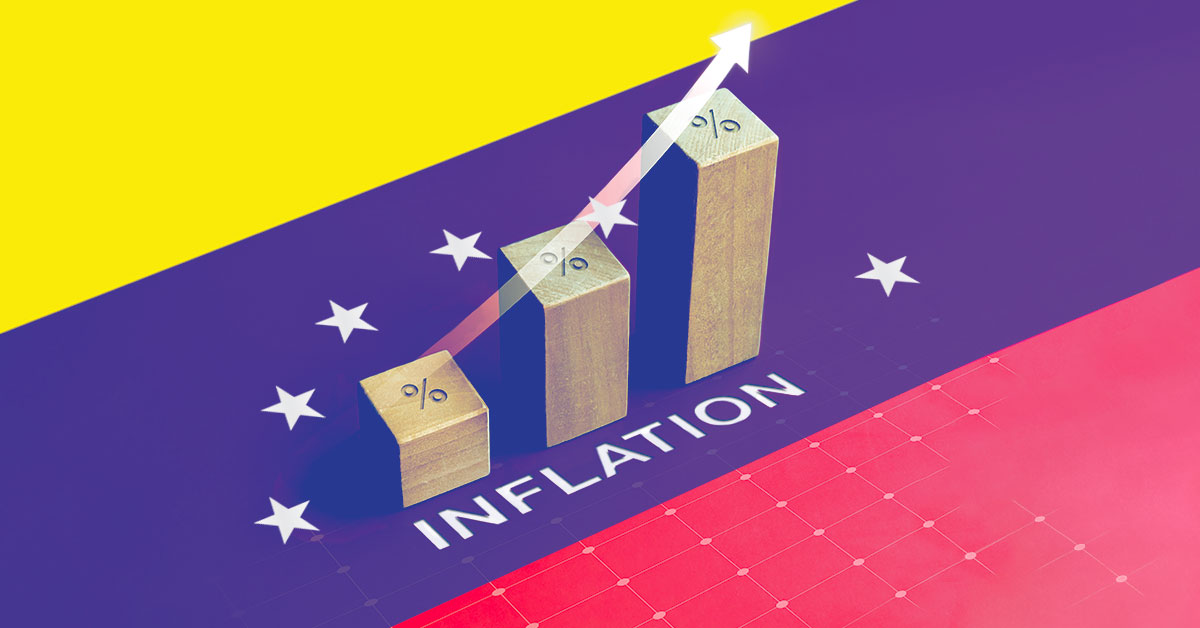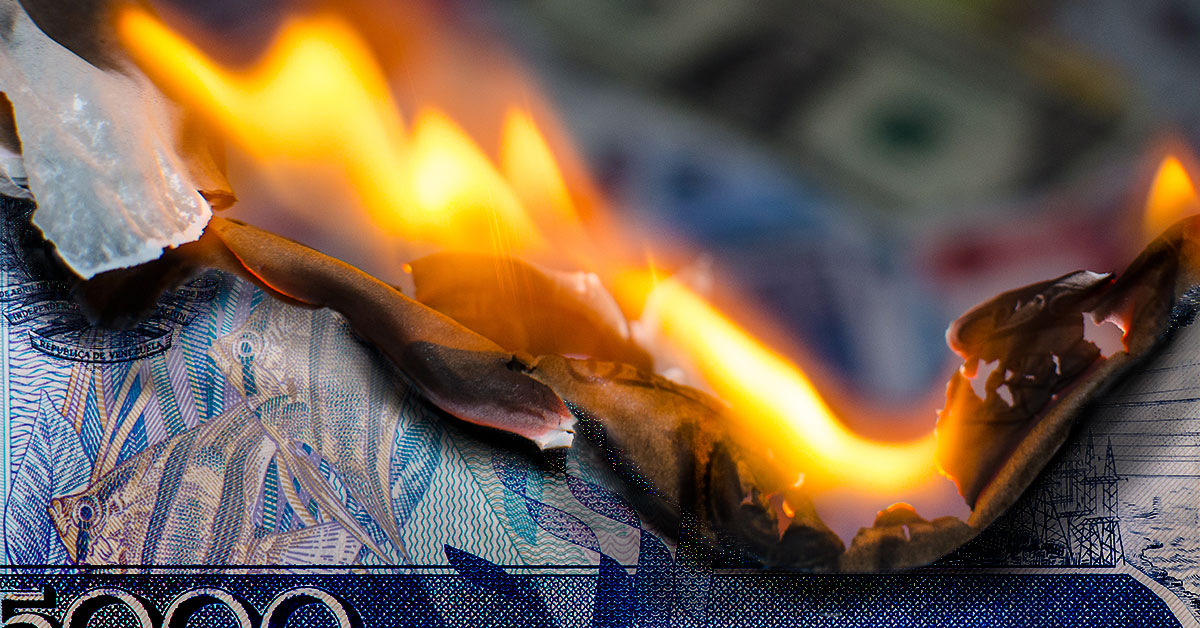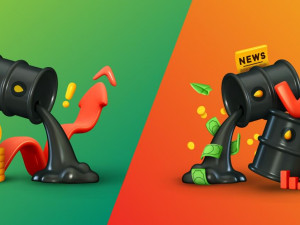
Venezuela has been through some significant economic turmoil in recent years, mostly due to its chaotic economic past. As a result, the country has been in an official state of crisis since the 2010s.
The Venezuelan Bolivar (VEF) is the third-weakest currency in the world as of 2023 and has endured extreme levels of inflation that have threatened the survival of the economy.
Despite these factors, Venezuela still has one of the world’s largest oil reserves and a skilled workforce to back it. In 2022, the economy grew by an estimated 6%, and has forecast additional growth of 6.5% in 2023, suggesting that the economy might be on the path to recovery. However, the country is still in significant economic trouble, and is currently suffering a refugee crisis as a result.
We explore how Venezuela managed to fall into economic turmoil, and also analyse whether Venezuela’s economy is on the path to recovery.

Venezuela’s economy before 2013
The bolivar (VED) has been the official currency of Venezuela since 1879, but was replaced in 2007 by the hard bolivar (VEF) in an attempt to curb inflation, which was around 18% at the time.
In 1964, post Bretton Woods system, Venezuela had been pegged to the US dollar, but made a decision to become free-floating. By 1983, inflation was high and has remained high ever since, despite repegging to the US dollar in 2003.
Introducing the hard bolivar in 2007 was a worthy attempt to pump the brakes on inflation, but instead had the opposite effect. Combined with other economic shocks from the Great Recession, inflation skyrocketed to 65,374% in 2018.
This inflation and weakness in the currency was caused by several factors:
Oil dependency
One of the main factors contributing to the downfall of Venezuela’s economy in recent years has been down to their heavy reliance on oil. Venezuela has the largest oil reserves in the world, and is a founding member of OPEC, contributing heavily based on its size to the global petroleum economy.
This has been a huge benefit to Venezuela at times. For example, in 2000 when oil prices soared, Venezuela turned over huge profits due to their heavy oil exports. Hugo Chávez, who was elected one year prior in 1999, doubled down on this reliance on oil, increasing the dependence from 80% to 95% by the end of his term in 2013.
Despite the financial crisis of 2008-9, and the subsequent 2010s ‘oil glut’, Chávez responded by introducing more exchange controls and nationalising more of the industry, instead of looking towards other investments. Chávez maintained a highly optimistic view of Venezuela’s future, despite inflation being at 30.5%, and Venezuela’s economy is still almost entirely dependent on the price of oil remaining high.
Inflation
Consistently high inflation since the 1970s has eroded the bolivar almost 500-fold against the US dollar, chipping away at Venezuela’s credibility as an economy.
Despite attempts to slow this inflation, such as replacing the bolivar and pegging to the US dollar, the inflation rate of Venezuela has remained higher than 10% since the 80s. Inflation in 2023 in Venezuela is currently around 317%.
Economic mismanagement & corruption
Both the Chávez and Maduro governments have implemented policies which have caused economic trouble later down the line. Since Chávez’s government introduced strict currency controls in 2003, there have been five currency devaluations. Price controls and nationalisations have also been rife, as well as public spending, which have strained the economy.
Unfortunately, Venezuela’s government has fallen to significant corruption, meaning that public funds have often been misappropriated. In 2022, the Corruption Perceptions Index ranked Venezuela as the fourth-most corrupt country in the world.
It is also estimated that the black market makes up 21% of Venezuela’s GDP. Illegal activities are a significant part of Venezuela’s economy, and reportedly criminal organisations generate over $9.4bn, which is protected by officials in government. The gold industry is also corrupt, and reportedly only 25% of profits make it back to the state.
These issues not only harm the economy directly, but also scare off prospective foreign investment.
International sanctions
Due to corruption and mismanagement within the government, the US government has sanctioned over 150 companies in Venezuela, as well as 119 individuals, many in government. This imposition of sanctions by the US, and several other countries in the international community has put even more strain on the Venezuelan economy, and increased the isolation of the country.

2013 Venezuelan economic crisis
The death of Hugo Chávez marked the beginning of an economic crisis which is still unfolding as of 2023, but the crisis began shortly before his death, and is a result of the preceding decades of oil dependency and mismanagement.
The oil glut of the 2010s led straight into oil prices falling sharply, reaching $30 per barrel in 2016. This drop caused Venezuela to fall into a state of total economic collapse by 2013.
Despite updating the currency in 2007, in 2018, the country had entered a state of hyperinflation, reaching an inflation rate of 65,374% in 2018, with some sources citing it had reached over 80,000%. In 2019, inflation was so out of control that some sources claimed that inflation was over 2,000,000%, but these figures are hard to verify. The poverty rate of Venezuela also hit around 90%.
Emigration of the population as refugees has reached 7.1 million as of 2022 – approximately 20% of the population.
Is Venezuela’s economy improving?
Venezuela’s economy has improved since the hyperinflation of 2018 in some small ways, however, there are still many headwinds, and further potential crises.
Venezuela owes approximately $140bn, and since 2017 has suffered steadily declining cash reserves.
Venezuela must fix not only an economic calamity, but also a humanitarian one, which proves difficult to solve simultaneously.
Reports do suggest that the economy might be moving up slightly, moving from -30% GDP in 2020, 0.5% in 2021, and then 6.5% in 2022 – however, many reports state that the economy improving and poverty rates showing a decline does not reflect the wellbeing of Venezuelans, which is still at an all-time low. Information from GlobalData suggests optimism for Venezuela, linking the increase in oil profits for Venezuela to the boycotting of Russian oil, projecting 5.6% GDP growth in 2023 and 5% in 2024.
A presidential election in 2024 that will begin functions on January 10, 2025, is for many a chance for Venezuela to approach the crisis with fresh leadership, but until then, the crisis continues.
For more currency news and insight into the ever-changing world of currency, make sure to stay up to date with our Expert Analysis, as well as our Market Commentary.
Caleb Hinton
Caleb is a writer specialising in financial copy. He has a background in copywriting, banking, digital wallets, and SEO – and enjoys writing in his spare time too, as well as language learning, chess and investing.



